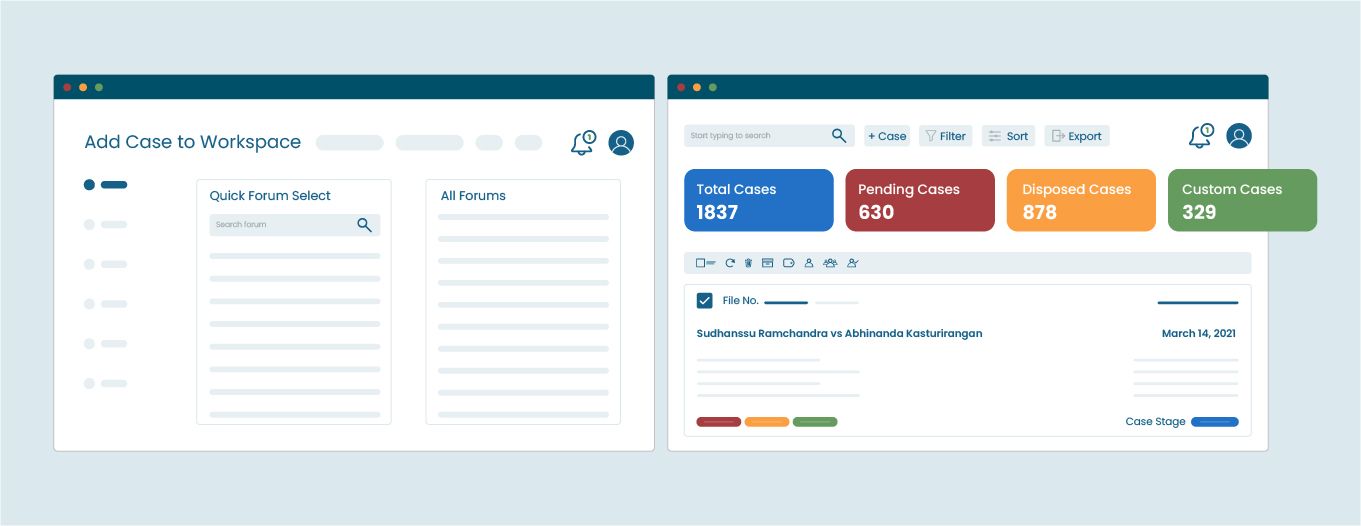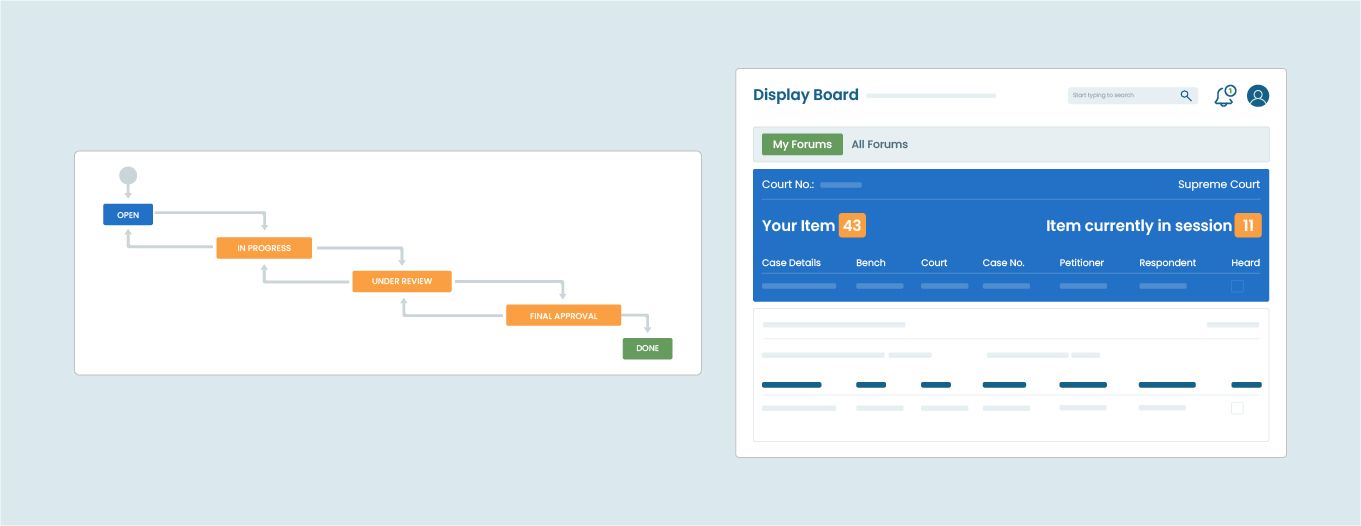About DDA
Delhi Development Authority (DDA) is a Government of India institution under the Ministry of Housing and Urban Affairs aimed at developing world-class infrastructure in the national capital city of Delhi. It develops residential and commercial complexes, community centers, parks, bridges, etc. in the city of Delhi. DDA operations require the acquisition, development, sale, and transfer of land and property. The nature of business results in a lot of commercial disputes with very high value.
The Challenge

The biggest challenge for DDA’s legal and the management team is to manage and track its high value of complex litigations. DDA has over 25000 cases pending in different courts across India. These litigations span 18 departments and 150+ sub-departments managed by a small legal team of 30 law officers. They have over 1500 impaneled advocates who handle these matters on behalf of the Authority. Given the size of the litigation portfolio, the following are the key challenges faced by DDA:
- Keeping track of court proceedings and compliances.
- Tracking new litigations filed against the Authority (50+ new cases filed every month).
- Keeping track of hearing dates for 300+ case listings every week.
- Keeping track of court proceedings.
- Tracking new litigations filed against the company and senior management.
- Internal communication and file tracking within departments and legal functions.
- Filing replies and complying with court orders in time to avoid penalties.
- Tracking performance of impaneled advocates.
- Transparency and accountability within the organization.
- Lack of visibility to senior management on key metrics and actionable.
The lack of a case management system has resulted in poor legal outcomes for DDA. There was a complete breakdown of internal processes from allocation of cases to advocates, file movement between departments, document and task management, court compliances and replies, etc. The system of allocation of cases was ad-hoc both internally and externally leading to a lack of accountability. A large number of hearings were missed due to lack of information or incomplete processes resulting in financial and reputational damage and delays in project execution.
The Solution

DDA has implemented the Provakil Litigation Management system across its organization. These five key components of the system are the following:
- Automatic Court Updates- Provakil has integrations with 9000+ courts and automatically updates the cases for the next date of hearing, orders, notices, bench information, or any other information released by the court. This is done by processing over 60,000 cause list documents and 10 lakh plus case status pages to structure unstructured data across forums. Different users on the platforms including legal officers, departments officers, advocates etc. are notified via email and mobile applications. This ensures that all the departments are aware of all court hearings and new case filings and the orders passed by the court on a daily basis without manually checking for these updates. This saves upto over 50+ man-hours every day and ensures that the right data is available with the right people in the organization.
- Process Automation - Provakil has helped automate multiple processes for DDA. Some of them include:
- Entrustment- Entrustment is the process of allocation of panel advocates to cases. It requires the generation of a templatized letter document with the details of the case, property, etc. that has to be approved by the Chief Legal Officer and emailed to the selected advocate.
- Daily Causelist Generation- A daily cause list is generated for each user depending on the cases they are allocated and sent to them.
- Hearing-level Updates- After every hearing, the concerned law officer has to fill in the details of the hearing in a specified form format. This takes in information for any compliances, adverse orders, court appearances, costs and creates visibility to the management on a dashboard.
- Internal Collaboration- Provakil system has the necessary tools for internal team collaboration for cross-department coordination. These tools include task management, document management, notes, email, and calendar integrations. All cases in the system are allocated based on the organization structure with user profiles reflecting the same. There are detailed user access controls to ensure proper visibility and accountability. Web and mobile applications ensure ease of access.
- External Counsel Management- Managing external counsels is one of the most important aspects of the system because of a high dependency. There are over 1500 counsels who attend hearings. After every hearing an automated form is sent via email to the council to report the details of the hearing in terms of court orders, compliances replies needed, evidence to be filed, etc. This communication is relayed to the law office and users of the concerned department to ensure court compliances are done on time. The system also sends case updates regarding hearings and orders to the counsels.
- MIS Reporting- Provakil system includes multi-level reporting for different stakeholders. The senior management has visibility on different processes, metrics, compliances at an aggregate and department, and sub-department level. There are reports to track lawyer performance. Reporting is done on case disposal, additions, across departments, and other classifications like forums.

Key Takeaways:
- 10,000+ hearing date updates were delivered every month to ensure proper representation and preparation.
- 500+ Entrustment documents automatically every month25% reduction in time spent by the legal team for checking updates, advocate follow-ups, and system updations.
